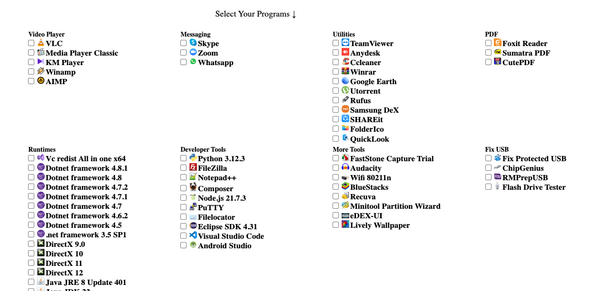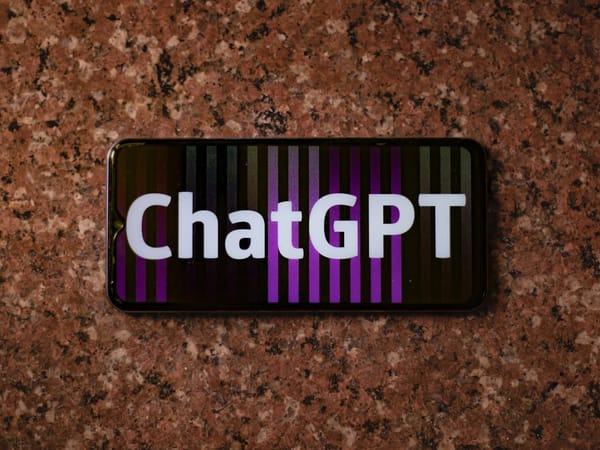Running a Medical Practice on Open Source
Table of Content
Many medical organizations around the world were forced to change the way they work and rapidly adapt to new technologies due to the novel Covid-19 outbreak. Large organizations such as these are finally seeing the importance of open source, where everyone can collaborate on a specific unified goal or problem and work on solving it together, instead of feeding the greed of proprietary solutions and those who stand behind them.
But open source goes beyond than this. Since the open source ecosystem has grown largely in the last years to cover almost every possible area in computing, medical organizations and companies are starting to fully depend on it to build their infrastructure and fulfill their duties.
Here's how you can do that too, as we try to answer the most important questions in this regard on the form of points.
What is Open Source?
- As a technical accurate term, open source is nothing more than a licensing model for software. Where developers can choose to release the source code for other users under a specific open source license to allow them to share, edit and redistribute the software.
- Open source licenses include ones like GPL, MIT, Apache and BSD.
- However, in reality, open source grows more than that to provide other things. Such as community, services and support around that software.
- In large enterprises and medical organizations and companies, people don't really use the software as it is for the sole reason of using it, because they need other things with that. Instead, they depend on the people, support and other services that are flying around that software.
- Open source has grown to become a full culture of creating things and sharing them with the world.
Why Open Source? Benefits and advantages.
- Licensing: Because of the open source licenses use terms and conditions, you are not limited on how you can use, edit or modify the software comparing to the proprietary solutions. You do not need to sign an EULA (End user license agreement) or contracts with any provider of open source software in order to use it.
- Cost: While some open source software can be costly, in general, most of them are absolutely free. This means your organization will be able to save huge amounts of money if it switches to open source.
- Sustainability: In need to add a new feature to the software, or in disagreement with the original developers? Did the original developers suddenly stop working on something you need? No issue, you can take the code any time you want and start building it yourself!
- Support: Choose between the nice free community support, or the much-less-costly premium support of open source providers.
- Collaboration: Since you and many other organizations, companies and people are working from all over the world on a specific software to solve a problem or a use case, then your final product of collaboration would be amazing and quickly goal-achieving comparing to writing your own from scratch.
Why did we write this article?
- Responsible people in medical companies and organizations seem to miss a starting point to guide them to medical open source software.
- To demonstrate how open source software can fully solve the use cases of the health care and medical sectors.
- To tell you about the initial steps you need to take on setting up a medical infrastructure with open source.
- Because we love open source, because we believe it is good, and we want to spread it everywhere!
Operating systems and the software
- There are many open source operating systems out there, such as Linux distributions and various BSD distributions (FreeBSD, OpenBSD...). But the most famous and supported one of them is Linux.
- A good desktop Linux distribution for the medical sector would be either Linux Mint or Ubuntu. They have built-in features and support for encryption, backups and a large software repository for medical programs. Read more on this list. There are also some several Linux distributions for the bio-medical sector which you can use.
- For server, any enterprise supported distribution such as Red Hat Enterprise Linux, SUSE Linux or Ubuntu can be used. If your server infrastructure won't be that complicated, then go with CentOS or Debian.
HIPAA and GDPR with Open Source
- Many open source programs in the medical sector are compatible with GDPR and HIPAA regulations and policies, though not all of them. You need to examine each software you use in order to see whether it is compatible or not.
- If a software is not compatible with these regulations, then you have 3 options: Either make it compatible yourself by developing it, or paying the developers of the software/3rd-party developers to make it compatible, or find another alternative.
- Examples on compatible software include, but are not limited to: GNU Health, Odoo, ERP5, ERPNext and much more you can find in our list: 17 GDPR-Ready Open source Projects for the Enterprise (ERP, CRM, CMS, CHAT, Cloud, Analytics)
Open Source Developers & Medical Requirements
- Sometimes you may find a very good software that you really need to use, but it has some minor bugs or modifications that you need to do.
- Instead of going through your bureaucratic internal process of recruiting and hiring developers for your in-house use, you can outsource that effort to other open source developers.
- You can find these open source software developer via searching for similar medical software on GitHub or LinkedIn, and emailing them for whether they are available for such a service. We do not recommend going directly to freelancing websites such as Upwork because the quality you'll get is not the same as actually hiring an open source software developer who worked in the same sector.
Lists of Possible Open Source Medical Solutions
- We have open source DICOM viewers.
- We have open source hospital ERP software.
- We have open source inventory management software.
- We have open source health information systems.
- We have a list about open source HIS "Hospital Information Systems"
- And much more, you can search our website for more of these lists.
Recommendations
- If you were the head of a health care organization or company, and wanted to evaluate whether you can switch to open source or not, then we recommend using the services of a team of consultants to evaluate the possibility of such a switch.
- We deeply recommend that the people you consult be users or developers of open source software beforehand, because otherwise, they might "laugh" at you and just tell you to pay $$$ for a proprietary solution and get along with it instead of moving their asses and saving you time, money and effort. (P.S: We are providing similar services).
- The evaluation process can take weeks or months, depending on the size of your organization and your requirements.
- A hybrid model is always possible; Where you use proprietary solutions for things you can't find an open source alternative for, and other open source software together.
Conclusion
So now you should have got all the basic information that you need in order to start evaluating open source for running your medical practice. Remember that is is just the introductory and article, and that we'll be publishing more of these posts soon.
If you have any comment or recommendation on what we said, we would love to hear that in the comments form below.










